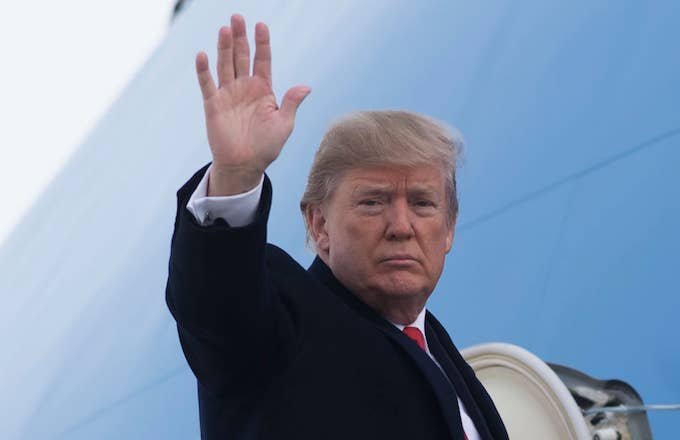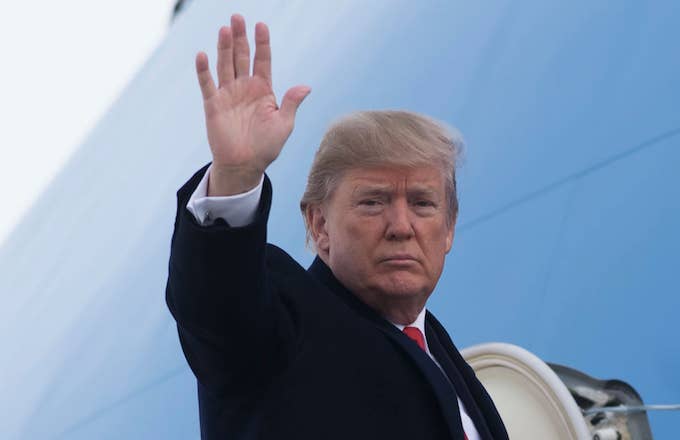
Over the weekend, Donald Trump—or at least Donald Trump's Twitter account—wrote something many observers took to be very incriminating. Trump claimed that he fired former National Security Director Michael Flynn because Flynn "lied to the Vice President and the FBI."
The problem? It's well-established that Trump tried like hell to get the FBI to back off on investigating Flynn, and eventually went as far as to fire FBI head James Comey. So if Trump knew Flynn was guilty, and then told the feds to stop investigating him, that looks pretty bad, right? Many experts thought that Trump's tweet amounted to an admission that he obstructed justice.
Swooping in to save the day, Trump's lawyer John Dowd mounted essentially a two-pronged defense. First, he claimed Trump didn't write the offending tweet—Dowd did. When asked for proof, he said that he didn't have any, because instead of submitting the tweet in writing, he dictated it to the social media manager, who then posted it. Oh, and he also misspoke about the whole knowing-about-lying-to-the-FBI thing. Needless to say, these claims were met with no shortage of skepticism.
After that line of argument didn't go anywhere, Dowd came out with another defense—that the President can't obstruct justice, period. The lawyer told Axios Trump "cannot obstruct justice because he is the chief law enforcement officer under [the Constitution's Article II] and has every right to express his view of any case."
Lawyers immediately came out of the woodwork to protest. Bob Bauer, an NYU law professor and former White House counsel to President Obama, told Axios, "It is certainly possible for a president to obstruct justice." Bauer went on to say that basically the only reasoning behind Dowd's claim is that prosecuting the President for obstruction might leave him unable to do his job, which for some legal minds is "a result that they see as constitutionally intolerable."
If Robert Mueller's investigation ends up charging Trump with obstruction of justice, that may move the Combover one step closer to impeachment. As the Guardian points out, the attempt to impeach Richard Nixon said that he "obstructed, and impeded the administration of justice."
And impeachment is likely to be the only way Trump pays a price for obstruction. It is basically impossible to charge a president with anything criminal while in office—no one's even really sure if it's legal. Impeachment can happen if POTUS is guilty of "treason, bribery, or other high crimes and misdemeanors." What exactly constitutes a high crime is left unsaid in the Constitution. However, obstruction of justice has, as per the Nixon example, met the bar before.
If Trump is impeached, he can then be charged criminally—at which point, barring a pardon from President Pence, he can face up to a decade per count of obstruction.

